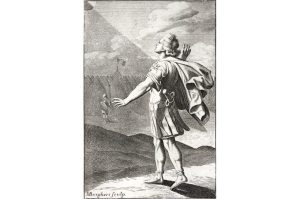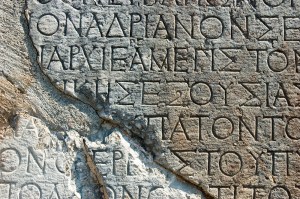Those with signs of COVID-19 are being asked to ‘self-isolate’ (Latin insula, ‘island’). But do they have the mindset for it? That requires self-sufficiency, for which the Greeks had a word: autarkeia (our ‘autarky’; contrast ‘autarchy’, ‘absolute rule’).
Such a mindset was essential in the ancient world, where the threat of starvation, disease or disaster was permanent, and death everywhere. Only the self-sufficient, who had the capacity to provide a basic living for themselves and their families, and the mindset to be content with that ‘basic’, stood a chance of survival. In that world, you were on your own. Democritus (5th century bc) likened it to living in a foreign country.
This attitude had resonance in the intellectual world. Socrates, an aficionado of the simple life, agreed that autarkeia was an essential mind-set, freeing one from the desire for material needs to create space for a life of self-examination. His pupil Plato turned autarkeia into an intellectual template of the supreme philosophical good, a self-reliance characteristic of a god, the perfect and complete way of living.
Such a life of the mind, or even of the body, was anathema to the cynic (Greek kunikos, ‘like a dog’) Diogenes: for him autarkeia meant not philosophizing but pursuing a way of life as close as possible to that of primitive man, animals and gods, and therefore dependent on no worldly goods or concerns, no ties of family and nationality, and contempt for all standards of conventional behavior.
For Pericles, on the other hand, the autarkeia he praised in Athens turned on its ability to provide all its material needs from its own resources, and the mental adaptability of its citizens. For Aristotle, and eventually Plato too, while personal autarkeia was an ideal, only a city-state could deliver it.
In the ancient world, the aim of autarkeia was survival, as it is today for those curbing their needs to save the planet. But for the educated, it was a route to intellectual fulfillment. Those isolated by COVID-19, when bored witless by TV, YouTube, (anti-)social media and PlayStations, might like to give it a go.
This article was originally published in The Spectator’s UK magazine. Subscribe to the US edition here.


















